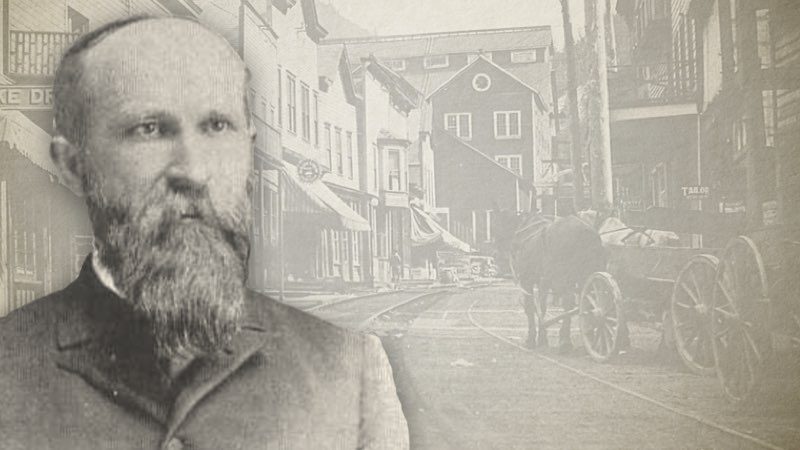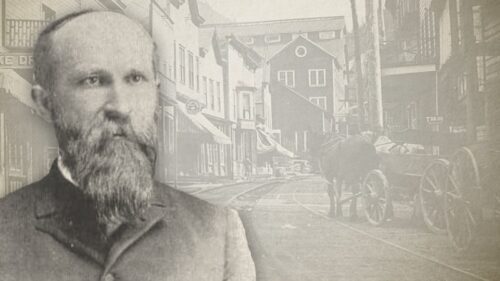-
Chapter 8: Waldensean Period (Continued)
A.D. 500 ANABAPTISTS.—In the year A. D. 500, we find Anabaptists existing in France and Spain. ''In the language of councils at this period, Christians are denominated, either from their opinions, heretics, or with a view to their discipline, schismatics; but there was one article of discipline in which they were all agreed, and from which they were frequently named, and that was BAPTISM. They held the Catholic community not to be the church of Christ; they therefore rebaptized such as had been baptized in that community, before they admitted them to their fellowship. For this conduct they were called Anabaptists." There never has existed any fellowship between Baptists and Catholics, but on the contrary, an obstinate declaration and refusal upon the part of each…
-
Chapter 9: Waldensean Period (Continued)
A.D. 1019. ALBIGENSES.—In the year 1019, we find the Catholics inflicting their accustomed persecutions upon the Albigenses in France. The Catholic idea of salvation by works, was so completely rooted and grounded in the people of that faith that no effort was made to propagate their doctrines except by compulsion. The idea had become universal, among them, that out of their church was no salvation, and that the end justified the use of any means, howsoever wicked, which might be used to compel submission to their faith. "With the Catholic, out of the church was death; within it was life, and in its maddening thirst for power, the Catholic party sought to crush everything beneath its feet, which it could not gather within its folds.…
-
Chapter 10: Waldensean Period (Continued)
A.D. 1110. Petrobrusians. About the year 1110, in the South of France, in the provinces of Languedoc and Provence, Peter de Bruys appeared, preaching the gospel with great power, and inveighing against the ritualistic forms of worship as practiced by Catholics. Great numbers were said to have been converted to his doctrines, which he continued to preach for twenty years, when he was burned at Giles, a city of Languedoc, in France, in the year 1130. Mosheim says this was done by an enraged populace, who were instigated by the Romish clergy, whose traffic was in danger from the enterprising spirit of this reformer. Nothing so stirs up the Romish clergy as opposition to their masses. If ''mass is the creative principle of popery," ignorance…
-
Chapter 11: Waldensean Period (Continued)
History tells us that in the dark ages, the Waldenses spread themselves all over Europe, but were everywhere treated as “the filth of the world and the offscouring of all things." Each succeeding generation seemed to increase in hatred towards these unfortunate people, and gave vent to its pent up fury with increased energy. Mr. Jones says, "During the dark ages which succeeded the invasion of Europe by the barbarous nations, when feudal anarchy distracted the civil governments and a flood of superstition had deluged the church, Christianity, banished from the seats of empire, and loathing the monkish abodes of indolence and vice, meekly retired into the sequestered valleys of Piedmont. Finding there a race of men unarrayed in hostile armor, uncontaminated by the doctrines…
-
Chapter 12: Waldensean Period (Continued)
Baptists have never held to the doctrine of apostolic succession, but have generally believed in church succession, and have always claimed that all authority is vested in the churches as the executives of Christ. While this is true they have ever had a high regard for a stated ministry. They have not been willing to force upon their members the responsibilities of ministerial obligations and duties until they have been duly set apart for this work, according to the apostolical injunction, by ordination. It sometimes occurred, during the severe persecutions to which the Waldensean churches were subjected, that their ministers were either all killed or driven out of the country, and there was no one left to administer the ordinances of the Lord's house. A…
-
Chapter 13: Heresies and Persecutions
From A.D. 426 to 1500. Very early in the history of Christianity, as has already been observed, heresies of different kinds commenced to creep into the churches. The true churches being independent of each other, in their organization and government, were but little affected by these heresies. Some of the churches, however, soon lost their independent form, and several combining together formed synods. A number of churches formed a single diocese and were under the control of one bishop. When these churches forming a single diocese became corrupted by false doctrine, or when the bishop begun to preach heretical doctrines, the whole diocese became corrupt. In this way came about the centralization of power which finally resulted in the establishment of popery. A.D. 416. Just…


